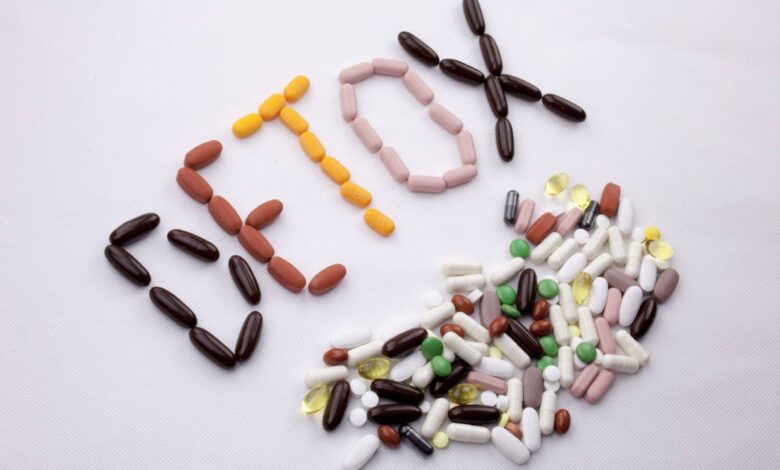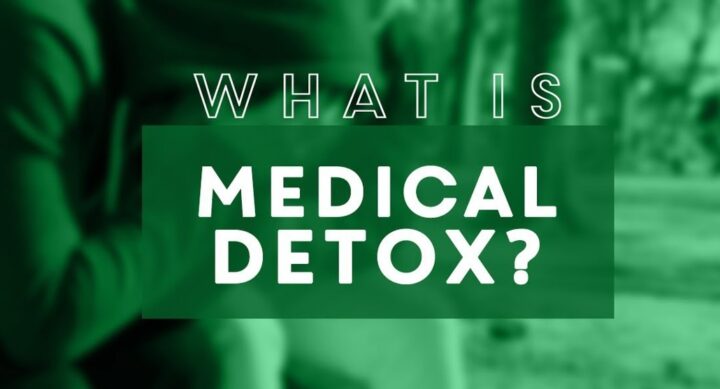What To Expect from Medical Detox: A Beginner’s Guide for Patients

You’ve made the decision to get yourself clean, and you’re probably wondering what to expect during the medical detox process at a professional treatment facility.
You may have heard the term medical detox being used in many ways. You may wonder what it all means and how it can help you!
Medical detox is one of the services that can be provided to an individual who tries to stop using drugs or alcohol and wants to recover.
But first, let’s talk about how long it will take — detox itself — because this can vary from person to person.
What is medical detox?

Detoxification means removing harmful substances from the body. This usually involves the liver and happens on a regular basis.
When we’re referencing a medical detox, that refers to supervised withdrawal from addictive substances like alcohol and drugs.
This first step in addiction treatment carefully helps the patient through the uncomfortable and sometimes dangerous effects of withdrawal like headaches, nausea, vomiting, fever, and more serious condition like heart palpitations and seizures. For more information on addiction treatments visit the Gallus Detox website.
During a medical detox, healthcare professionals may use medications to ease or prevent certain symptoms and provide support during this difficult but important step on the road to recovery.
How long does withdrawal last?
There are a lot of variables when it comes to how long your detox would take. Some drugs leave your system quickly and others either take more time to break down or are affected by how long you’ve been using.
Your personal medical history can also change how long your body takes to clear toxins.
On average detox takes between 3 and 14 days. In some cases, people can experience symptoms for much longer, even months.
Who needs medical detox?

Not everyone. Detox is usually the first step in a drug rehabilitation program it’s designed specifically for those who have developed a dependency on a drug or alcohol or for those who may be at risk for serious health problems if they tried to stop on their own.
Medical detox isn’t intended to ‘fix you’. This treatment helps to eliminate the physical symptoms of addiction so that you can move on to the psychological recovery.
Steps to Medical Detox

The process of detox can be broken down into 4 stages:
- Assessment
- Withdrawals
- Medication
- Transition
Sometimes medications like benzodiazepines, methadone, buprenorphine, suboxone, and naltrexone will be used to combat the effects of withdrawal and therefore help prevent relapse.
Some of the drugs used are designed for very short-term usage to provide comfort and stave off serious side effects and others may be used more long-term during your treatment plan.
What should you expect when you go into medical detox?
The medical staff at your rehab center will evaluate your condition and any underlying health concerns and mental health disorders.
Intake Interview
Very often rehab centers start with an interview with questions related to your substance use and your typical lifestyle.
Questions in these types of interviews may include:
- Drug or alcohol usage in the past 30 days
- Where have you been living over the last month
- How much stress has your substance usage caused you?
- How often has your substance usage interfered with regular activities
- Do you have children and where do they live?
- How would you rate your health?
- Are you satisfied with your life?
- What treatments if any have you received in the last 30 days and not only for substance use
Once your overall health has been evaluated, they will develop a personalized treatment plan based on your history and substance usage.
At this point, you will have discontinued any alcohol or substance use and withdrawal symptoms may have already started. They will continue to monitor you and provide any medical support until your body has stabilized.
You can experience mild to severe symptoms that include:
- Fevers
- Headaches
- Muscle pain
- Irritability
- Nausea
- Anxiety
- Fatigue
- Insomnia
- Rapid heart rate
- High blood pressure
- Seizures
- Tremors
A typical day in a rehab center

If you choose to detox through an inpatient program, then most facilities push for a very structured routine to diminish anxiety.
Your mornings will start at the same time each day and the nurses will distribute any medications that you’ve been prescribed. This is usually followed by breakfast and depending on your particular treatment plan and where you are on your journey, perhaps some group therapy.
Afternoons usually include more therapy after a healthy lunch. Some centers take this time for individual therapy or activities like fitness classes, yoga, art, and meditation.
Evenings typically end the day with another group reflection session and a specific time for ‘lights out’ to maintain a good sleep pattern.
What happens once you’re sober?
Detox is only the first step on your journey through recovery.
Whether you decide on inpatient treatments that include counseling and therapies or move into outpatient programs once you’ve detoxed is something to discuss with your care specialists and family.
Detox should always be combined with further care for a successful journey to overcoming addiction.
Takeaway: Detox can be scary and daunting at first but knowing what to expect can help alleviate that fear
Medical detox is not a complicated procedure, but it can be scary, especially if you have never done it before.
No doubt you’ve heard plenty of horror stories about what happens during detox, and that can make the process—and even getting help—feel even scarier.
Be assured that help is available and that medical detox is not going to feel scary or incredibly uncomfortable.
Just relax and take it one day at a time. You got this.
